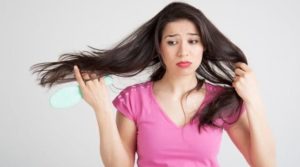Hair loss is a common concern affecting millions of people worldwide, and its causes can be complex and multifaceted. While occasional hair shedding is a normal part of the hair growth cycle, persistent or excessive hair loss can be distressing. Understanding the various factors that contribute to hair loss is crucial for addressing and managing the condition effectively. Here’s an in-depth look at the primary factors that can impact hair loss.

1. Genetics
Genetics play a significant role in determining hair loss patterns and susceptibility. The most common type of hair loss, known as androgenetic alopecia or male/female pattern baldness, is hereditary. This condition is characterized by a gradual thinning of the hair, often starting at the temples or crown of the head. If you have a family history of hair loss, you may be genetically predisposed to experiencing similar issues.
2. Hormonal Changes
Hormonal imbalances can profoundly impact hair growth. Several hormonal factors can contribute to hair loss:
- Androgens: Elevated levels of androgens (male hormones) can lead to hair thinning. This is particularly relevant in conditions like polycystic ovary syndrome (PCOS), where hormonal imbalances can cause excessive hair shedding.
- Thyroid Hormones: Both hyperthyroidism (overactive thyroid) and hypothyroidism (underactive thyroid) can lead to hair loss. Thyroid hormones play a crucial role in regulating the hair growth cycle, and imbalances can disrupt normal hair growth.
- Pregnancy and Menopause: Pregnancy can lead to temporary hair loss due to hormonal fluctuations. Similarly, menopause can result in thinning hair as estrogen levels decrease.
3. Nutritional Deficiencies
Proper nutrition is vital for maintaining healthy hair. Deficiencies in certain nutrients can lead to hair loss:
- Iron: Iron deficiency anemia can cause hair thinning and shedding. Iron is essential for delivering oxygen to hair follicles, and a lack of it can impair hair growth.
- Vitamin D: Low levels of vitamin D have been linked to hair loss. Vitamin D plays a role in the hair growth cycle and helps regulate hair follicle health.
- Biotin: Biotin, a B vitamin, supports hair growth and strength. Deficiency in biotin can lead to brittle hair and hair loss.
4. Stress and Trauma
Both physical and emotional stress can have a significant impact on hair health. Stress-related hair loss, known as telogen effluvium, occurs when stress causes hair follicles to enter the resting phase prematurely, leading to increased shedding. Trauma to the scalp or significant life events, such as surgery, illness, or major lifestyle changes, can also trigger this type of hair loss.
5. Medical Conditions
Several medical conditions can contribute to hair loss:
- Autoimmune Diseases: Conditions like alopecia areata occur when the immune system mistakenly attacks hair follicles, leading to patchy hair loss.
- Scalp Infections: Fungal infections, such as ringworm, can affect the scalp and lead to hair loss. Treating the infection is essential to restore hair growth.
- Chronic Illnesses: Certain chronic conditions, such as diabetes and lupus, can impact hair health and contribute to hair loss.
6. Medications and Treatments
Certain medications and medical treatments can lead to hair loss as a side effect:
- Chemotherapy: Cancer treatments like chemotherapy can cause temporary hair loss, as they target rapidly dividing cancer cells but also affect hair follicles.
- Medications: Some drugs, including those for hypertension, depression, and arthritis, can cause hair loss as a side effect. If you suspect your medication is affecting your hair, consult your healthcare provider for alternatives.
7. Hair Care Practices
Daily hair care practices can influence hair health and contribute to hair loss if not managed properly:
- Excessive Heat Styling: Frequent use of heat styling tools, such as flat irons and curling wands, can damage hair and lead to breakage and thinning.
- Chemical Treatments: Regular use of hair dyes, perms, and relaxers can weaken hair and lead to hair loss. Harsh chemicals can strip hair of its natural oils and cause structural damage.
- Tight Hairstyles: Hairstyles that pull tightly on the hair, such as ponytails and braids, can lead to traction alopecia, a condition where hair is pulled out from the roots due to constant tension.
8. Age
As people age, it is natural to experience some degree of hair thinning. Hair growth slows down, and hair follicles may become less active. Additionally, the rate of hair replacement slows, leading to thinner hair. Aging can also be accompanied by hormonal changes that further affect hair growth.
9. Environmental Factors
Environmental factors can impact hair health and contribute to hair loss:
- Pollution: Exposure to pollutants and environmental toxins can damage hair and contribute to hair loss. Pollutants can weaken hair strands and affect scalp health.
- Sun Exposure: Prolonged exposure to UV rays can lead to dryness and damage, affecting the overall health and appearance of hair.
10. Genetic Predisposition
Genetic factors determine hair characteristics and susceptibility to certain conditions. If hair loss runs in your family, you may be more likely to experience similar issues due to inherited genetic factors. Genetic predisposition can affect the density, thickness, and overall health of your hair.
Conclusion
Understanding the various factors that contribute to hair loss is crucial for identifying the underlying causes and seeking appropriate treatment. From genetic predisposition and hormonal changes to nutritional deficiencies and stress, numerous elements can impact hair health. By addressing these factors through lifestyle changes, medical treatment, and proper hair care, you can manage and potentially mitigate hair loss. If you’re experiencing significant or persistent hair loss, consulting with a healthcare professional or dermatologist can provide personalized guidance and effective solutions.